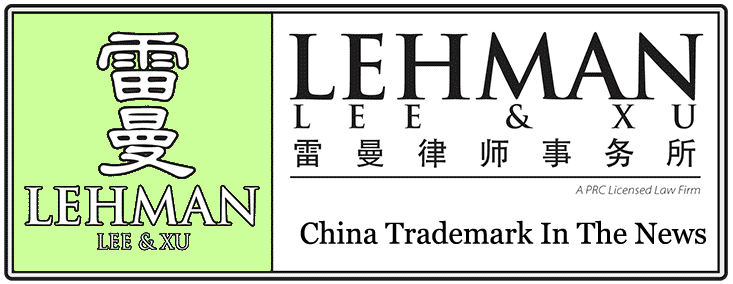A reporter called me the other day on the Apple-Proview trademark kerfuffle. She kept wanting me to give her a quote on what foreign companies should take away from this dispute and I kept parrying with her, unable to give her just one. I kept finding myself saying "it's probably more complicated than that."
Let me back up a bit. As many of you no doubt know, Apple is in a massive trademark fight with a Shenzhen-based company called Proview. Near as I can tell, the facts are as follows:
- Proview-Shenzhen registered the iPad trade-name before Apple had ever manufactured an iPad.
- Proview-Taiwan (a Taiwanese company that is not the same company as Proview-Shenzhen) entered into an agreement with Apple (or, more accurately, a company acting on Apple's behalf) to sell its Asian iPad trademarks to Apple.
- Apple claims that agreement with Proview-Taiwan included the PRC iPad trademark, but Proview is claiming otherwise.
- Apple sued Proview (I think Proview-Taiwan, but I am not sure) in Hong Kong and the Hong Kong court ruled that Apple is entitled to use the iPad trademark on the Mainland.
Here is where it gets so complicated and here is how I see it:
- Proview-Shenzhen still shows up as the owner of the iPad trademark in China.
- It is not clear if Proview-Shenzhen ever contracted with Apple to give Apple the China iPad trademark or any sort of license to use that trademark.
- It appears that Proview-Taiwan did enter into some sort of trademark sale or licensing agreement with Apple (again, actually the company acting on Apple's behalf), but since Proview-Taiwan did not own the PRC trademark for iPad, there are some real issues as to the validity of such a sale or license.
- Did Proview-Taiwan have any interest in the PRC iPad trademark such that it could transfer or sell that interest to Apple?
- Did Proview-Shenzhen ever agree to sell or license its iPad trademark to Apple?
What I find really difficult to believe is that Apple and/or Apple's attorneys would have done a deal to acquire rights to the iPad trademark in China without having done real due diligence on that trademark. Basic due diligence would have revealed that the PRC iPad trademark was registered to Proview-Shenzhen and at that point, Apple would have required Proview-Shenzhen (not Proview-Taiwan) sign on to the contract to assign or license the PRC mark. So the first thing to be learned from this (maybe) is to do your due diligence and make sure that when you are buying something or securing a license to something that you are in fact doing so with the company that is actually authorized to sell or license that item.
This all came to the fore when Proview-Shenzhen started asking trademark officials in various Chinese cities to start pulling iPads from store shelves because those iPads infringe on Proview-Shenzhen's trademark. Some cities are pulling iPads from store shelves and this is obviously not good for Apple. [Full Disclosure: I have a disproportionate percentage of my retirement savings wrapped up in Apple stock]. Some cities seem to be refusing to do so, in what appear to be political, not legal, reasons.
Now Proview-Shenzhen is saying that is going to ask China customs to block exports of Apple's iPads from China because they infringe on Proview-Shenzhen's trademark. The media (and even Proview-Shenzhen itself) seem to believe this will not happen because it would look so bad for China politically. This is where the real lesson lies. If you are not Apple, I can pretty much assure you that all of your iPads would be off the shelves in China by now and they would also not still be leaving China via export. The real lesson then is on how to prevent this from happening to "your" trademark and that lesson is really quite simple. If you want to avoid your product getting pulled off shelves in China and/or prevented from leaving China, make sure that the trade-names and trademarks you put on your product (or on its packaging) are actually registered (or licensed) to you in China. And just to be clear, "in China," for purposes of China's trademark law, does not mean in Hong Kong or in Taiwan or in Macau or in the United States or in Australia or in any other country. If you want China trademark protection, you must register the trademark in China.
For more on China trademark law, check out the following:
Here are some articles for those who want to read more about the Apple-Proview fight:
Just don't say we didn't warn you.
UPDATE: Stan Abrams over at China Hearsay has two great (recent) posts on this dispute. The first post, "Apple vs. Proview: The Assignment Agreement!" contains Stan's analysis of the Trademark Assignment Agreement between Apple (actually it's stand-in entity) and Proview. Stan does a great job of analysing the Assignment Agreement, which really is by far the key issue involved in the case. I completely agree with all that Stan says about the Agreement and I add one thing to it. If you think you can properly assign a Chinese trademark without using an experienced attorney to draft the contracts and oversee the agreements you are wrong. And if you think that after reading Stan's post, you are flat out crazy.
The second post, "What Have We Learned About China¡¯s IP System? Answer: nothing," posits that the issues in this matter involve a commercial dispute, not IP. I generally agree with this. The heart of the issue is how you secure ownership or rights to someone else's trademark.
Web link: http://www.chinalawblog.com/2012/02/apple_v_proview_so_much_to_learn.html
|

